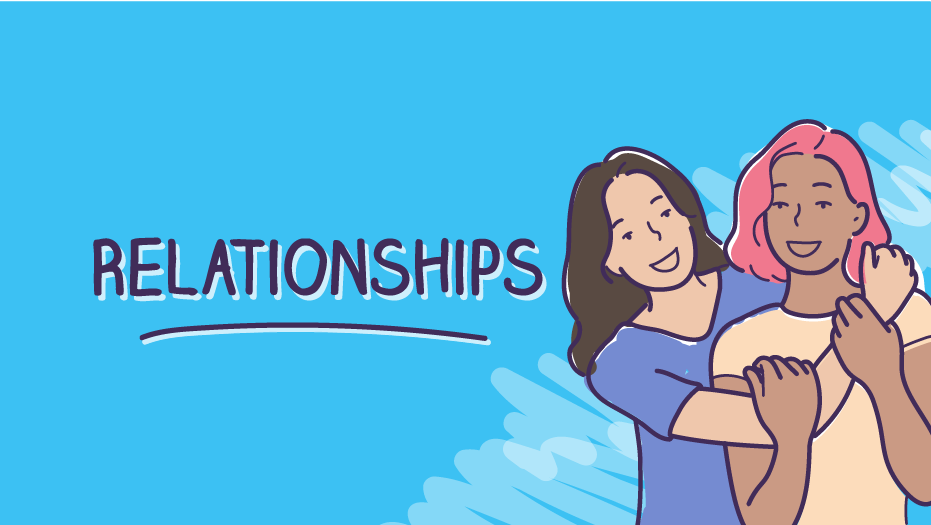 8th February 2021
8th February 2021
The Secret to Happiness—According to Science
Humans are known as the ‘ultra social’ species. And the world’s longest running study has found that good relationships are the number one predictor of physical and mental health.
Over a staggering 80 years, Harvard University has followed people’s lives—beginning with 268 Harvard students (including President John Kennedy), expanding to kids growing up in Boston ghettos, and now including grandchildren of the original participants.
The study has discovered that people in reliable relationships live longer, have better physical health and even better memory retention as they age. While those living with loneliness or in volatile relationships, have more health complications and die younger.
The good news is that it’s not about being popular and it’s not even about always getting along—you can even bicker every day, but ‘if you feel you could really count on the other person during tough times’ it protects your brain, says study director Robert Waldinger.
Building better relationships
‘We are absolutely wired to be social,’ agrees Just a Thought Clinical Lead Anna Elders. ‘Even a simple hug, for example, triggers the calming hormone oxytocin, and that hug will also help reduce blood pressure.’
The first step to building good relationships is to look at our own belief systems, she says.
‘When we see ourselves as being lovable and others as potentially trustworthy, we will put ourselves out there to create relationships. But when we have the opposite beliefs, we either run from relationships or find ourselves in fight-or-flight mode within our relationships.’
Having a good sense of ourselves and our values will help us find ‘our’ people. ‘We are not going to be liked by everyone and that’s okay, but we can find the people that fit with us and what we believe in,’ says Anna.
When things get hard
The fact that relationships are so important to us, is precisely why they can be so hard.
‘We’re all socially anxious at some basic level and that helps us cooperate with each other. It’s important to normalise that relationships are hard—we are all cruising around on this planet, and each of us have our own baggage and experiences and feelings.’
That’s why conflict is an inevitable and even necessary part of relationships—it’s not about if we fight, it’s about how we fight.
We are not going to be liked by everyone and that’s okay
‘In conflict, people quickly arm themselves for battle. We need to disarm ourselves and help the other person disarm themselves, so we are facing each other as two human beings who are wanting to understand each other and reach an agreement together,’ says Anna.
‘When we find ourselves in conflict, the most important thing is to look after your own distress first. Focus on how you feel and be compassionate and gentle with yourself, so those feelings can come down.
‘Then try and put yourself in the other person’s shoes, validating their perspective which can quickly help to disarm any defensiveness they may feel.’
Learning to fight well is actually better than avoiding conflict, she adds. ‘It’s important to realise that conflict is uncomfortable and be willing to feel that discomfort. A lot of people who avoid conflict don’t want to feel that discomfort—but that means they don’t assert themselves honestly.’
But if we face up to conflict in a way that shows empathy, we actually build respect for each other and strengthen our relationships.
THIS WEEK’S CHALLENGE: REACH OUT
Did you know that even chatting to staff at your local cafe increases happiness? This week’s challenge is to find small ways to connect with someone else, every day. Start with something you find quite easy, and move on to challenges that feel harder.
Here are some simple ideas:
- try smiling at everyone you see for a day—what effect did this have on your wellbeing?
- look for a simple way to ‘pay it forward’ by doing something for someone else
- chat to someone at your local café, supermarket or shop
- or talk to the checkout person at the supermarket
- email a good friend you’ve been meaning to connect with
- give a stranger a compliment
- ask a workmate you’d like to get to know better for a coffee
- try to see an issue from your partner’s perspective—and bring that to the conversation
- when you’re out and about, try not distracting yourself on your phone
- do something simple to increase your feelgood chemicals—like saying ‘I love you’, giving a hug, or getting a massage
- allow yourself to face up to a conflict, even if it makes you feel uncomfortable
- tell your partner something that you appreciate about them.
BE IN TO WIN: All you need to do this week is tag a friend on any of our posts and share a feelgood message with them - and you'll in to win our weekly care package!
